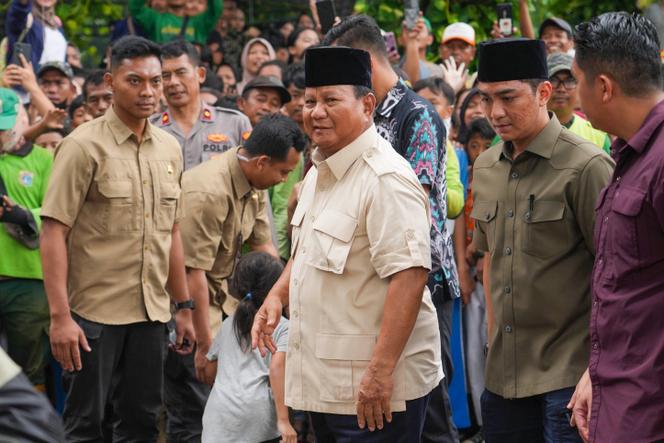


The victor of the Indonesian presidential election has blood on his hands. Prabowo Subianto, 72, was elected in the first round of voting on February 14 – with a remarkable score (over 55% of the vote, according to a provisional estimate) – and has succeeded in putting his shady past behind him. Throughout his campaign, he had endeavored to present himself as a debonair "grandpa," displaying some touching dance steps on videos filmed during his election rallies. However, the new president's résumé paints a very different picture of this grandfather: That of a ruthless man, who led commandos of cutthroats who cut a bloody swath through the dark years of the dictatorship (1967-1998).
Ex-officer of the Kopassus (Indonesian special forces) at the time of the crackdown on resistance in the former Portuguese colony of East Timor – which was invaded by Indonesia in 1975 – this elite soldier led several counter-insurgency operations, notably in the 1980s.
The testimonies recorded by the Truth and Reconciliation Commission – which was set up by the UN in 2001 before the country of Timor-Leste gained independence – are as detailed as they are explicit: On September 16, 1983, near the village of Karaubalo, Major Prabowo's men executed a group of guerrilla fighters and their families, including women and children.
Although figures on the number of victims are still debatable, the Commission – which has based its findings on the recollections of survivors – has stated that 55 people were killed that day. A Timorese man who had hidden under the corpses of other victims testified: "I heard the moans of two babies, aged 1 or 2 years, a boy and a girl, who had [also] escaped the gunfire. A soldier slit their throats with a knife before going to smoke a cigarette."
The following day, around 140 men who had fled from an army raid were machine-gunned to death in the village of Buikarin, once again by Prabowo's men. The investigation was unable to determine whether they were resistance fighters or civilians, or a mix of both. While the investigations have not directly implicated the president-elect in the massacres, his position in the chain of command and the fact that he directed operations from his command post – located in the region of the massacres – leave little doubt as to his responsibility for the atrocities perpetrated by his men. Prabowo has never been investigated.
Yet the crimes committed by this man, who would later be promoted to the rank of general and then head of the Indonesian Army Strategic Reserve Command (Kostrad), were not limited to the remote territory of East Timor. In the spring of 1998, as Jakarta descended into chaos and President Suharto's dictatorship faltered, Prabowo once again made his mark: He had a dozen students and pro-democracy activists kidnapped and tortured.
You have 45% of this article left to read. The rest is for subscribers only.
